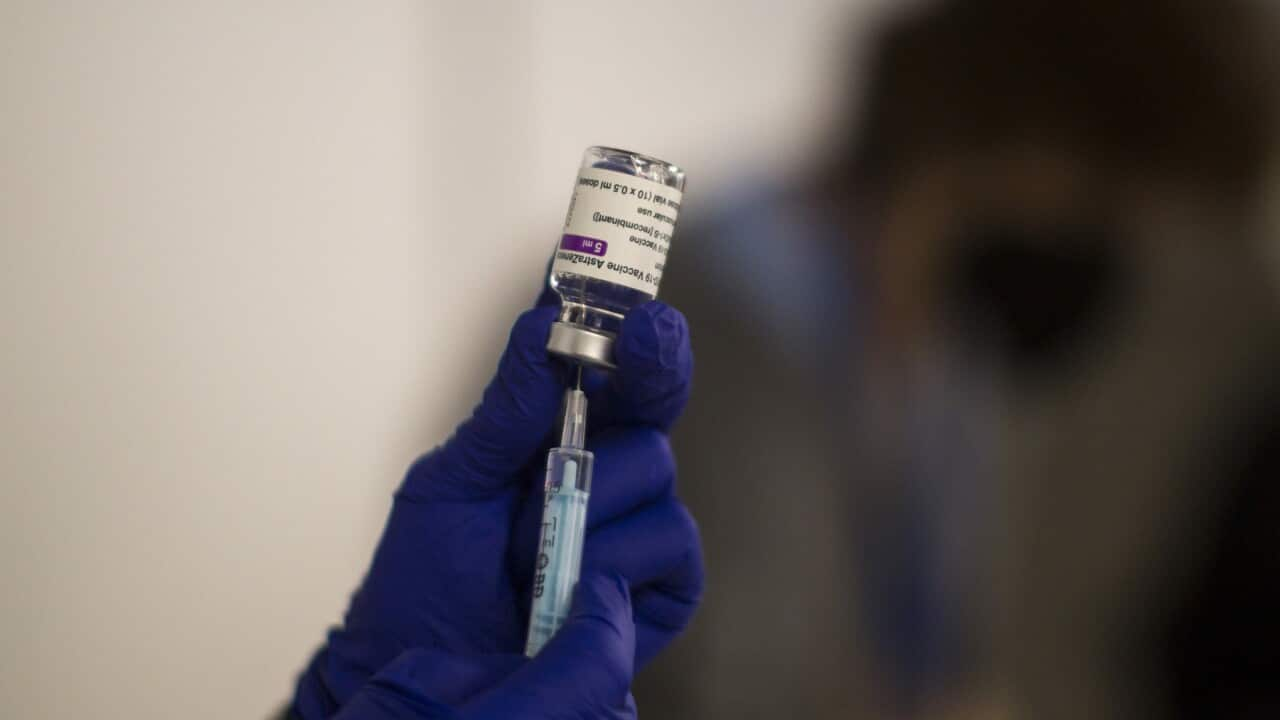TRANSCRIPT
“At the current time, the use of the Pfizer vaccine is preferred over the AstraZeneca vaccine in adults aged less than 50 years who have not already received a first dose of AstraZeneca vaccine. This is based both on the increased risk of complications from COVID-19 with increasing age and thus increased benefit of the vaccination and the potentially lower, but not zero risk of this rare event with increasing age.”
In 2023, it was announced the Covid-19 vaccine AstraZeneca would no longer be available in Australia from March 21st.
It came after there was link found between the vaccine and a rare but serious side effect.
Now, AstraZeneca’s COVID vaccine has been withdrawn globally after admitting those adverse side effects.
Health Minister Mark Butler says that's not surprising.
“AstraZeneca took a decision to withdraw its first generation COVID vaccine from Australia quite some time ago, so it hasn't been available here in Australia for a considerable period of time, and that's no surprise really. It was the first generation vaccine and has been superseded by a range of newer vaccines that particularly targeted the newer variants. Most recently, the Omicron variants. I received my first dose of COVID vaccine as an AstraZeneca shot. It protected hundreds of millions of people across the world and saved millions of lives, and I thank AstraZeneca for that.”
On April 30, AstraZeneca conceded the vaccine, sold under the name Vaxzevria, can cause fatal blood clots and low platelet counts, also known as thrombosis with thrombocytopenia syndrome, or TTS.
The admission came through court documents in a U-K class action lawsuit which sought A$190 [[£100]] million for almost 50 victims of AstraZeneca vaccine side effects.
Infectious Diseases Physician Dr Paul Griffin explains.
“This was a very rare clotting phenomenon that was associated predominantly with the first dose of that AstraZeneca vaccine. And that led to some significant clotting events, and in rare cases was associated with deaths. So in Australia, I believe we had 11 deaths that were associated with that vaccine, and eight of them were actually from that clotting phenomenon, TTS. So while of course, a devastating consequence in those that did get it, it is important to point out that it's very rare.”
TTS was very rare in Australia with government estimates suggesting it affected around 2 per 100,000 people aged 60 or older, and around 2-3 per 100,000 people under 60 years of age.
Symptoms typically occurred between 4 and 42 days after a first dose of the AstraZeneca vaccine.
So Dr Griffin says there's no reason for anyone to be worried about those extreme side effects now.
“We know that inflammatory reactions to vaccines, so things like myocarditis with other vaccines or TTS with AstraZeneca occurred predominantly quite early following receipt of the vaccine. So the vast majority of those cases of TTS occurred in the first three or four weeks with some potentially out to six weeks. But it's not thought to be feasible beyond that sort of a timeframe. So people don't need to worry that if they had the vaccine when it was being used in this country, there's no risk of any ongoing effects, particularly relating to TTS.”
The last batch of AstraZeneca in Australia reportedly expired on March 21, 2023.
Making the announcement, AstraZeneca has taken credit for Vaxzevria saving more than 6.5 million lives during its first year of use alone.
It says as multiple Covid-19 vaccines have since been developed, there's been a decline in demand for Vaxzevria - and it has therefore initiated the withdrawal of marketing authorisations within Europe.
The vaccine will first be discontinued in the European Union, with applications lodged for other countries.













